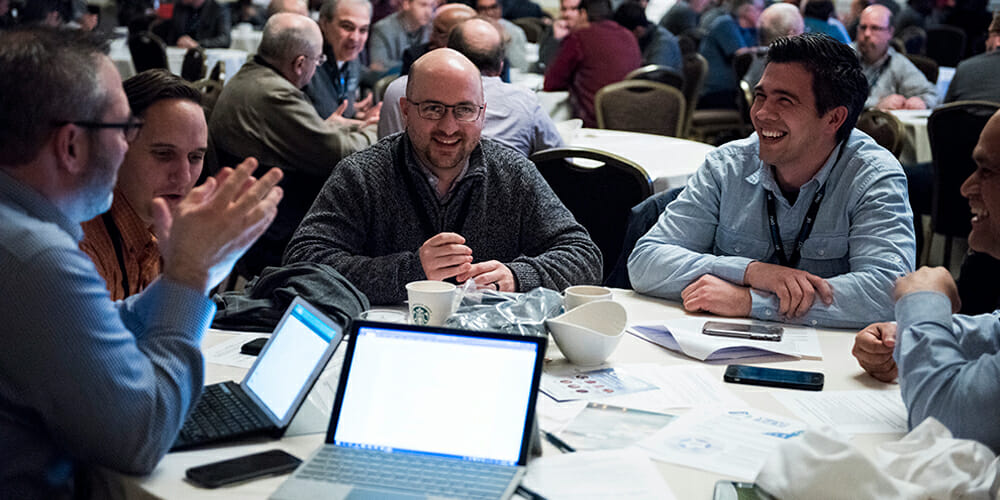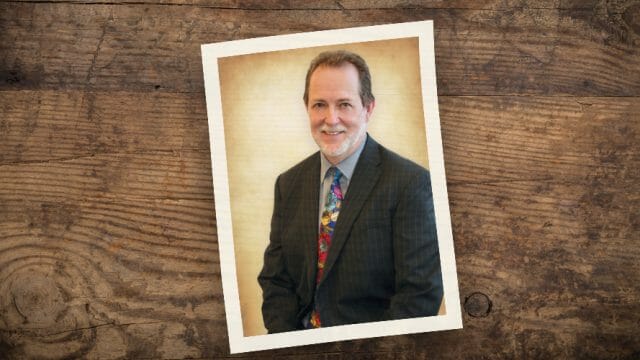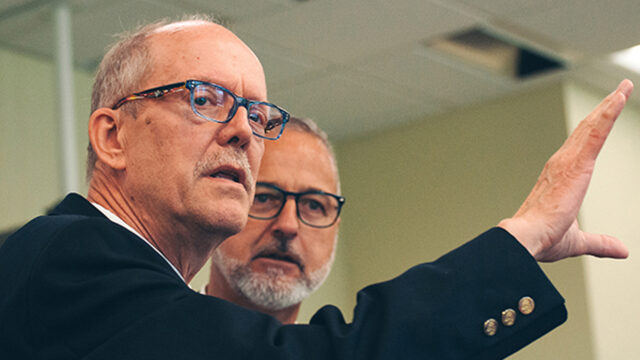Participants invited to improve on successful outreach methods and try new ones.

For two and a half days, February 18-20, 2019, evangelism directors of conferences and unions, church administrators, pastors, innovators, and other leaders of the Seventh-day Adventist Church in North America gathered at eHuddle in San Diego, California, United States, to share, learn, and dialogue on how the North American church can more effectively reach people in an increasingly secular culture.
More than 200 people attended the eHuddle event, sponsored by the North American Division (NAD) Ministerial Association, though more were able to benefit from the presentations during the first two days via video live stream on Facebook. During the meeting, more than 30 presenters shared tried and tested ways — often referred to as traditional soul-winning methods — to reach out to their communities, while others shared innovative, creative, and new approaches for how they engage their local community and church. The eHuddle meetings also featured roundtable discussions after the presentations.
“For this year’s event, we wanted to address two needs that we see in our churches: first, we focused on how churches can grow young and ensure retention of young people. Presentations were shared how to disciple children and to help them make a serious decision for Jesus,” said Jose Cortes Jr., event organizer and associate director of the NAD Ministerial Association. “Second, we engaged with the epidemic of dying and plateauing churches in our division. We are concerned about the health of our churches and, therefore, wanted to address these issues.”
Various presenters spoke on these two themes, sharing practical solutions and ideas on how they were addressing them in their local context. In one presentation, Tim Gillespie, lead pastor of the Crosswalk Seventh-day Adventist Church in Redlands, California, spoke about how his church helps remote churches connect to Crosswalk. The satellite congregations reap the benefits from the programming at the main church.
During his presentation, Gillespie challenged the audience: “We live in a time where Uber is the largest taxi company in the world, and yet it doesn’t own a car. Airbnb is the largest hotel chain, but it doesn’t own a room. Perhaps we need to rethink the model of church in our current time.”
The presentations and ideas shared at eHuddle were “incredibly helpful and informative,” according to David Dennis, president of Southern New England Conference. “For me, this event can be best described as a café of ideas,” Dennis said. “I see what ideas are being tried, and it inspires me with new ideas and helps my team to reflect on our evangelistic efforts. What I learn here influences the training of our pastors and churches.”
Like Dennis, Tom Evans, president of North New South Wales Conference in Australia, sees value in this event. “Bringing my team to eHuddle gives them exposure to the world’s best practices. Each of them comes from a different context, and so each of them is blessed, moved, and motivated in their own way by listening to various presentations,” Evans said. “We need to consistently search for new and relevant avenues and methods in ministry. I like how eHuddle creates space where projects can be refined and developed.”
Many attendees of this year’s event said they left invigorated by the ideas that presenters shared. First-time attendee Vanston Archbold Jr., general field secretary for the Southwest Region Conference, said, “I am inspired what others are doing. I have the same amount of resources, and this encourages me to figure out what I can do in my field. Others are doing it, and that gives me the courage that I can do creative ministry as well.”
The meeting this year encouraged attendees throughout the NAD to try new things and, at the same time, also served as a reminder that evangelism is not the same in every community, organizers said.
“It is important to find a way to create relationships and connect with people in the community,” said Ivan Williams, director of NAD Ministerial Association. “This requires an understanding of what their needs are.”
The original version of this story was posted on the North American Division news site.








